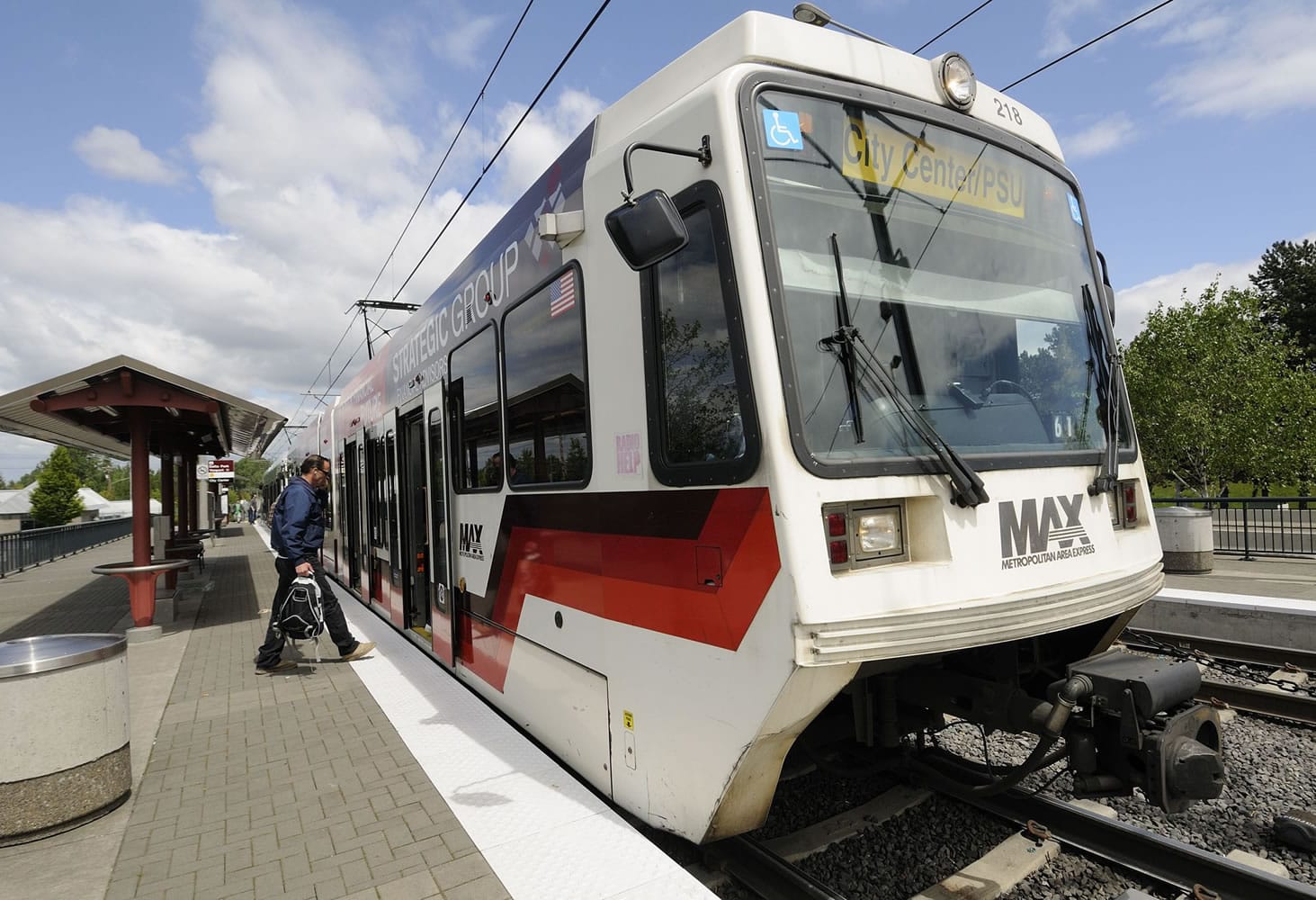A month after starting a wider search for ways to pay for operating light rail in Vancouver, the C-Tran Board of Directors indicated Tuesday that process isn’t finished yet.
The board did take a closer look at several possible options as C-Tran explores revenue sources that don’t require a sales tax increase — the path C-Tran had long assumed until this year. Among the alternatives presented Tuesday: an employer tax, a car rental tax, a vehicle license fee, or a more direct contribution from the existing C-Tran or city of Vancouver budgets.
C-Tran Executive Director Jeff Hamm noted that most of those options individually won’t pick up the annual $2.57 million tab to operate light rail in Vancouver, as a sales tax would; a combination of options would be required, he said.
The light-rail extension to Clark College is planned as part of the $3.5 billion Columbia River Crossing project.
Clark County Commissioner Steve Stuart, one of nine voting C-Tran board members, suggested another possibility: using light rail fares to make the system pay for itself. That’s an option Vancouver Mayor Tim Leavitt — one of the most prominent voices pushing for the extra study — has also shown interest in.
C-Tran officials have said fares alone may not work, and that other high-capacity transit systems don’t operate that way.
But Stuart said he believes it could pencil out if light-rail fares are close to those of C-Tran’s express bus service — even if ridership doesn’t totally meet expectations. He urged C-Tran staff to at least look closer at the idea and bring back some numbers. Other board members seemed to agree.
The light-rail funding analysis carries an important condition — that C-Tran keep in mind a November ballot measure to put to voters. Some options, such as a sales tax, require a vote under state law. The agency could also consider a nonbinding “advisory vote” related to light-rail funding.
On Tuesday, some board members aired old frustrations with the uncertainty surrounding this year’s vote, which C-Tran has long promised. The majority of the board has said it’s ready to pull the trigger on a ballot measure.
“This board needs to step up and say, ‘Are we going to do this, or not?’” said Clark County Commissioner Tom Mielke.
Stuart noted C-Tran policy requires a public vote before the agency signs off on light rail in Vancouver. That, he said, hasn’t changed.
“It’s not coming unless there’s a vote,” Stuart said.
Fare increase approved
The board also approved a proposal to raise fares for most of its riders.
The change will bump the cost of most single rides by a nickel starting Sept. 1. This will be the fifth consecutive year C-Tran has raised fares, keeping with the agency’s recent strategy of spreading out regular — but modest — increases to cover rising costs without a huge up-front impact to riders. C-Tran also increased fares in May 2008, March 2009, September 2010 and September 2011.
This year’s boost will put the cost of a bus or C-VAN ride within Clark County at $1.65 for adults. An All-Zone cash fare would jump to $2.50, including stops in Portland. All-Zone fares for youth (age 18 or younger) and honored (65 and older or disabled) riders would jump to $1.25. Youth and honored-rider cash fares within Clark County, however, would stay flat at 80 cents.
The increase will also apply to all-day and monthly passes. Some board members balked at the relatively large change to an adult All-Zone monthly pass — from $90 to $100 — a change designed to keep the price in line with monthly passes for the Portland area’s TriMet system, said Diane O’Regan, C-Tran’s administrative services director.
The latest round of increases comes on the heels of a voter-approved sales tax hike, which took effect April 1.
Eric Florip: 360-735-4541; http://twitter.com/col_enviro; eric.florip@columbian.com.





